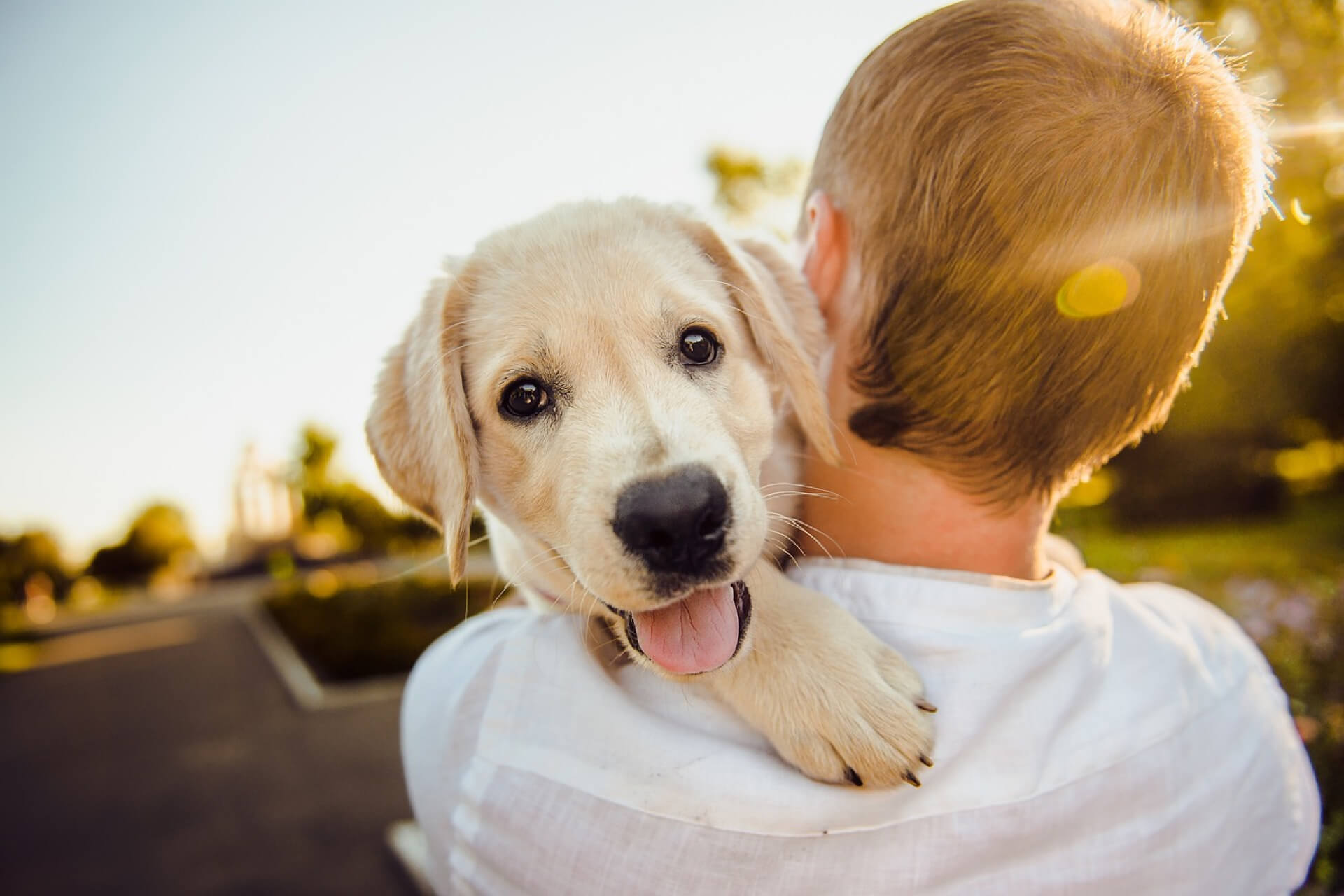Lost pets come home with Peeva.
Food that is not safe for your dog to consume.

Although some dogs may have different reactions than others, it is always better to error on the side of caution when it comes to pet nutrition.
If you’re anything like me, when you got your dog you figured she will be a whole lot healthier and live longer if you don’t feed her the same boring dog food everyday. Besides, how boring is it for your dog to have to eat the same thing every day anyway? How much nutrition can a bag of dog food really provide? Although some dog food brands are better than others, mixing certain people foods like lean meats and fresh produce is good practice. Never-the-less, there are certain everyday foods humans eat that could be toxic to your dog even in small amounts.
It makes me sad to hear people tell me time and again about how much they miss their dog because it started developing seizures for no reason. There sadly usually is a reason and that reason usually is a result of something toxic their dog consumed.
So before you just give your dog a treat or a scrap form the table think about the ingredients and ask yourself….
Is Avocado ok for my dog to eat?
No. Avocados have something called persin. It’s fine for people who aren’t allergic to it. Persin is in the leaves, seed, and bark, as well as the fruit.

Is it ok to give my dog Alcohol?
No. Alcohol has the same effect on a dog’s liver and brain that it has on people. But it takes a lot less to hurt your dog. Just a little beer, liquor, wine, or food with alcohol can be bad. It can cause vomiting, diarrhea, coordination problems, breathing problems, coma, even death. And the smaller your dog, the worse it can be.

Are Onions and Garlic ok for my dog to eat?
Keep onions and garlic — powdered, raw, cooked, or dehydrated — away from your dog. They can kill his red blood cells, causing anemia. Garlic is part of the Allium family, and it is five times more toxic to dogs than the rest of the Allium plants. Garlic can create anemia in dogs, causing side effects such as pale gums, elevated heart rate, weakness, and collapsing. Poisoning from garlic and onions may have delayed symptoms so if you notice your dog in a bad health condition think back a few days about everything he may have consumed and Garlic could be the reason.

Is Chocolate really toxic for my dog?
Yes. Most people know that chocolate is bad for dogs. The problem in chocolate is theobromine. It’s in all kinds of chocolate, even white chocolate. The most dangerous types are dark chocolate and unsweetened baking chocolate. Chocolate can cause a dog to vomit and have diarrhea. It can also cause heart problems, tremors, seizures, and death.
Chocolate contains very toxic substances called methylxanthines, which are stimulants that stop a dog’s metabolic process. Even just a little bit of chocolate, especially dark chocolate, can cause diarrhea and vomiting. A large amount can cause seizures, irregular heart function, and even death. Do not have chocolate in an accessible location. If your dog does ingest chocolate, contact a veterinarian or Pet Poison Helpline as soon as possible.

Is it ok if my dog has caffeine?
No. Coffee, Tea, and Other Caffeine can be fatal. Give your dog toys if you want him to be perky. Watch out for coffee and tea, even the beans and the grounds. Keep your dog away from cocoa, chocolate, colas, and energy drinks. Caffeine is also in some cold medicines and pain killers. Think your dog had caffeine? Watch for restlessness, fast breathing, and muscle twitches.

What happens if my dog eats Grapes and or Raisins?
There are better treats to give your dog. Grapes and raisins can cause kidney failure in dogs. And just a small amount can make a dog sick. Vomiting over and over is an early sign. Within a day, your dog willget sluggish and depressed.

Is it ok to give my dog Milk instead of water?
No. Canines in general are lactose-intolerant and don’t digest milk well. Lactose is a sugar found in milk products. While it is okay for dogs to have a little milk, owners should be cognizant of the symptoms of lactose-intolerance and might want to stick to giving their dogs water. Milk and milk-based products can cause diarrhea and other digestive problems for your pup. They can also trigger food allergies, which can cause her to itch.

Is it ok to give my dog ice cream?
No, dogs shouldn’t eat ice cream. As refreshing of a treat as ice cream is, its best not to share it with your dog. Although it’s also a dairy product, frozen yogurt is a much better alternative. To avoid the milk altogether, freeze chunks of strawberries, raspberries, apples, and pineapples and give them to your dog as a sweet, icy treat.

Not all peanut butter is good for dogs!
My dog loves peanut butter, so all kinds of nuts are ok to give him right? No. You shgould always read the ingredients to make sure it does not have xylitol in it.

Pecans, walnuts, and macadamia are also toxic for dogs.
Almonds may not necessarily be toxic to dogs like other nuts are, but they can block the esophagus or even tear the windpipe if not chewed properly.
Keep your dog away from macadamia nuts and foods that have macadamia nuts in them. Just six raw or roasted macadamia nuts can make a dog sick. Look for symptoms like muscle shakes, vomiting, high temperature, and weakness in his back legs. Eating chocolate with the nuts will make symptoms worse, maybe even leading to death.

Fat Trimmings and Bones
Fat trimmed from meat, both cooked and uncooked, can cause pancreatitis in dogs. And, even though it seems natural to give a dog a bone, she can choke on it. Bones can also splinter and block or cause cuts in your dog’s digestive system.
My dog loves to eat Peaches and Plums so those are ok to give as a treat right?
Nope. The problem with these fruits is the seeds or pits. Seeds from persimmons can cause problems in a dog’s small intestine. They can also block his intestines. That can also happen if a dog eats the pit from a peach or plum. Peach and plum pits also have cyanide, which is poisonous to people and dogs. People know not to eat them. Dogs don’t.

Is it safe for my dog to eat raw eggs?
Raw eggs can have harmful bacteria that is toxic for dog’s to ingest.

Are deviled eggs bad for dogs?
Deviled eggs are a popular dish, typically made from hard-boiled eggs, mayonnaise, mustard, and various seasonings. While the primary ingredient, eggs, is generally safe for dogs in moderation, the additives can be a concern:
Eggs: When fully cooked, they can be a great source of protein and are safe for dogs. However, raw egg whites can interfere with biotin absorption, potentially leading to skin and coat problems.
Mayonnaise: Many commercial mayonnaise brands have a high-fat content, which can be problematic for dogs if consumed in large quantities, potentially leading to obesity or pancreatitis. Some may also contain ingredients like garlic or onion powder which are toxic for dogs.
Mustard: In small amounts, mustard isn’t particularly harmful to dogs, but it can cause stomach upset. However, some dogs might be more sensitive than others.
Seasonings: This is where the main concern lies. Many seasonings, such as onion and garlic powder, are toxic to dogs.
In summary, giving a tiny piece of deviled egg once in a while is probably harmless, but it’s essential to know the ingredients and ensure it doesn’t contain anything toxic. Always provide in moderation and observe for any adverse reactions.
My dog loves Raw Meat and Fish. Is that ok?

Nope. not even if his name is Rocky. Some people feed their dogs a “raw diet” that includes uncooked eggs. But the major veterinary medical associations don’t think that’s a good idea. There’s the chance of food poisoning from bacteria like salmonella or E. coli. Talk to your vet if you have questions. Also fat from scraps is not good and bones can be be choking hazards.

Like raw eggs, raw meat and fish can also have bacteria that causes food poisoning. Some fish such as salmon, trout, shad, or sturgeon can also have a parasite that causes “fish disease” or “salmon poisoning disease.” It’s treatable, but get help right away. The first signs are vomiting, fever, and big lymph nodes. Fully cook the fish to kill the parasite.
Salt
It’s not a good idea to share salty foods like chips or pretzels with your dog. Eating too much salt can make your dog seriously thirsty. That means a lot of trips to the fire hydrant and it could lead to sodium ion poisoning. Symptoms of too much salt include vomiting, diarrhea, depression, tremors, high temperature, and seizures. It may even cause death.

Is crushed red pepper bad for dogs?
Crushed red pepper, commonly used to add heat to dishes, can be problematic for dogs. While it isn’t toxic per se, the capsaicin in the pepper which gives it the spicy heat can cause gastrointestinal irritation in dogs. Symptoms might include stomach upset, vomiting, diarrhea, and excessive thirst. Additionally, if the pepper comes in contact with a dog’s skin, eyes, or nose, it can cause irritation. It’s best to avoid giving your dog foods seasoned with crushed red pepper.
Is lemon pepper bad for dogs?
Lemon pepper is a seasoning made from crushed black pepper and lemon zest. While black pepper in small amounts is generally safe for dogs, it can cause gastrointestinal upset if consumed in large quantities. The lemon zest, on the other hand, is more concerning. Citrus plants, including lemons, contain compounds that can be toxic to dogs, especially in significant amounts. Symptoms of citrus poisoning in dogs include digestive upset, depression, and photosensitivity. Given the potential risks, it’s best to avoid giving your dog foods seasoned with lemon pepper.

Sugary Foods and Drinks
Too much sugar can do the same thing to dogs that it does to people. It can make your dog overweight and cause problems with her teeth. It can even lead to diabetes.
Is butterscotch bad for dogs?
Butterscotch is a confection made primarily from brown sugar and butter. There are several reasons to be cautious about giving butterscotch to dogs:
Sugar: High sugar content can lead to obesity, dental problems, and even diabetes in dogs if regularly consumed.
Butter: High fat content, which can be problematic for dogs if consumed in large quantities, potentially leading to obesity or pancreatitis.
Xylitol: This is the most significant concern. Some sugar-free or reduced-sugar butterscotch may use xylitol as a sweetener. Xylitol is extremely toxic to dogs and can cause rapid insulin release, leading to hypoglycemia (low blood sugar). Symptoms can include vomiting, loss of coordination, seizures, and, in severe cases, can be fatal.
Always check ingredient lists if you consider giving any human treat to your dog, and as a general rule, it’s best to avoid giving butterscotch to your pet.
Remember that every dog is different, and what might be safe for one dog might cause problems in another. Always introduce new foods in small amounts and monitor for any adverse reactions. When in doubt, consult your veterinarian.
Yeast Dough
Before it’s baked, bread dough needs to rise. And, that’s exactly what it would do in your dog’s stomach if he ate it. As it swells inside, the dough can stretch your dog’s abdomen and cause a lot of pain. Also, when the yeast ferments the dough to make it rise, it makes alcohol that can lead to alcohol poisoning.

Your Medinice
Dogs shouldn’t take people medicine. It’s can make them very sick. Just as you do for your kids, keep all medicines out of your dog’s reach. And, never give your dog any over-the-counter medicine unless your vet tells you to. Ingredients such as acetaminophen or ibuprofen are common in pain relievers and cold medicine. And, they can be deadly for your dog.
Baking powder and baking soda are both highly toxic.

So are nutmeg and other spices.

Peeva: Where Lost Pets Find Their Way Home
Transform your pet’s microchip into a lifeline. 24/7 phone support and lost pet alerts ensure your pet gets the help they need, when they need it.
You Might Be Interested In
- Health, Wellness, Nutrition, Microchipping




